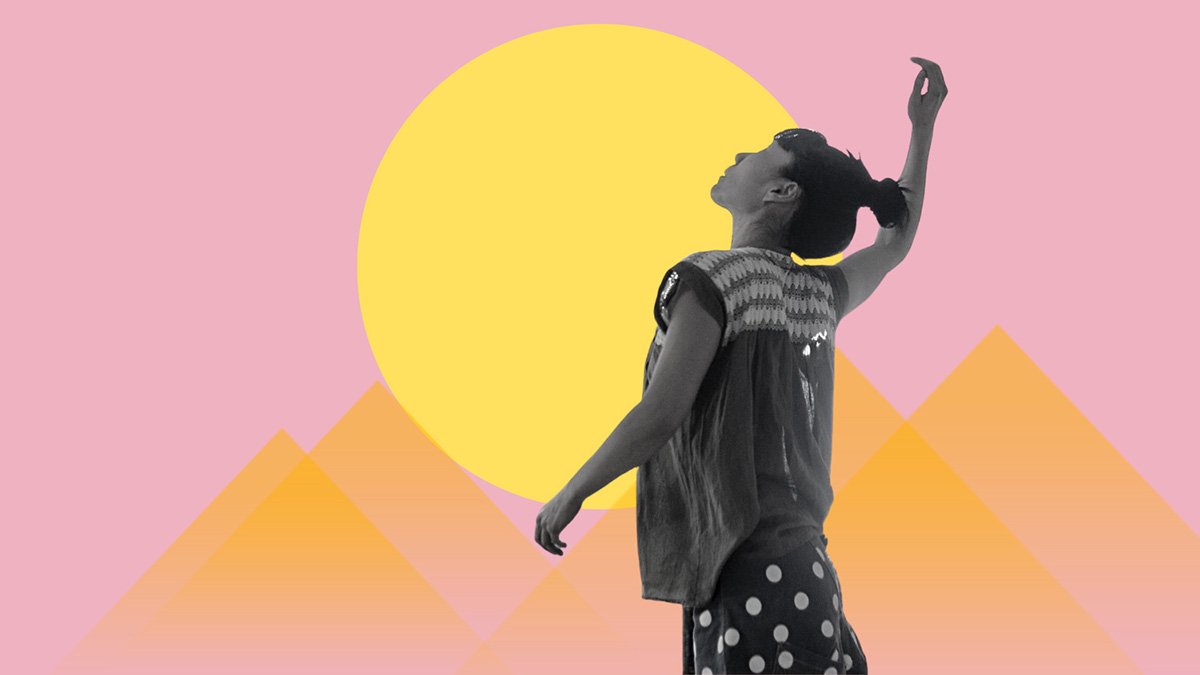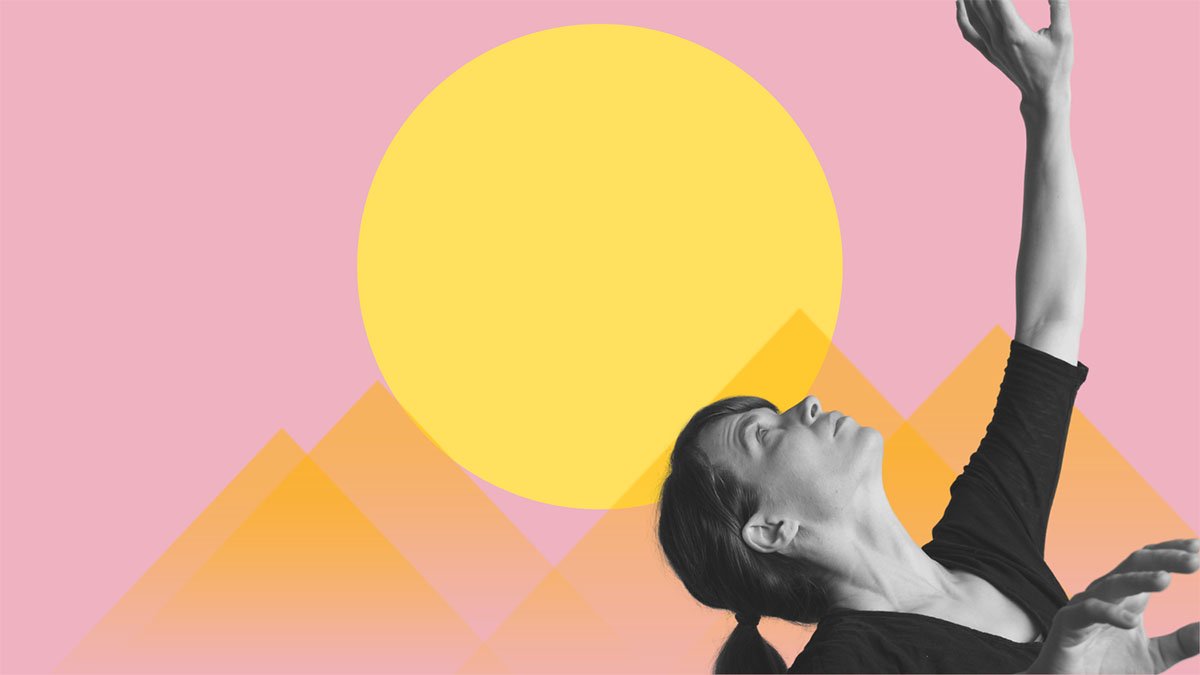Posture matters: Change Your Posture, Change Your Mood!
An 8 Lesson Feldenkrais Awareness Through Movement Series with Sarah Baumert
Everyone’s posture, or how they “use” themselves, isn’t always optimal, with the help of the Feldenkrais method, your postural habits can improve to make everyday movements more enjoyable and easy. Your posture, or, how you navigate being upright with gravity, profoundly affects not only your physical comfort, but your overall health and emotions too.
With awareness, specificity, and practice, we will free the muscles of the neck, shoulders, spine, and face. As one moves towards more freedom in the neck, lower back, and jaw, one also moves towards a more easy, elegant, and upright posture. Our aim is not a perfect posture, but a place of less tension and conflict in the body where our posture is fluid, not rigid.
“The increase of collapsed sitting and walking–from sitting in front of our computer to looking down at our smartphones–may very much have an effect on the rise of depression in recent years. Emotions and thoughts affect our posture and energy levels; conversely, posture and energy affect our emotions and thoughts.” - Powerful Links Between Posture and Mood
None of us are immune to the aches and pains in the spine and neck due to modern day hazards, including long hours looking down at phone and computer screens.
“Although we each have a fantastic skeleton and musculature designed to give us flexible support and hold us upright against the pull of gravity, we frequently develop postural habits that challenge our skeletal structure's effectiveness and cause muscular tension inflammation, and a gradual deterioration of our joints.” - Feldenkrais Trainer David Zemach- Bersin”
Developing skills that take advantage of the amazing human skeleton and learning to move closer to an optimal posture is a powerful tool for improving confidence in the inner environment of the body and decreasing pain from muscular tension and imflammation.
The human brain is known for it’s ability to adapt and change in any situation. These lessons will prompt the brain to support freedom of movement and a healthy effortless upright posture. The ultimate goal is efficiency, a body that can move in any direction, and a body that can find efficient comfortable solutions to modern day stressors.
As your posture improves, you may feel that your attitude and emotional state also improve, and you can access new parts of yourself or parts which have been long forgotten.
Each lesson will relieve the body of old, self-limiting postural habits that hold you back. Lessons will be done in various positions including, sitting, standing, back lying, side lying, and front lying.
$180 for the course.
For scholarship options, please inquire directly with Sarah.
What You’ll Discover In This Online Series:
Movement: This series will include eight lessons in total. Two variations of each lesson are included, for 16 total classes.
Lessons included in this series:
1. Posture & Why it Matters: A Presentation
2. Gravitational Resistance for the Spine
3. Opening Your Chest for Upright Posture Part One
4. Opening Your Chest for Upright Posture Part Two
5. Head and Shoulders in Sitting
6. The Horizon Behind You
7. Arching and Rounding for Better Posture - In Sitting 🪑
8. Freeing the Head and Neck - in Sitting 🪑
9. Pushing Through the Feet to Find Your Length
BONUS: Unravel Body Anxiety to Find Your Length
Educational Talks:
• Pre lesson Anatomy Lessons
• The philosophical framework for ATM
Connection:
• Recorded Q & A to listen to questions, connect with the other students, and discuss the method and tools we are learning about.
• Optional 10 minute consultation with Sarah
• Online forum to connect and ask questions if you are doing the recordings
• Email support
Ways to keep practicing:
• Stream recordings indefinitely
• Option to download recordings
Once you have purchased the course, you will have immediate access to the class recordings.
How to use the Marvelous software for livestream and recorded classes.
About Sarah: Sarah Baumert is known for her thorough and diverse instruction and her dedication to holding space for individual personal discovery. She facilitates whole body alignment in her students as a way for them to access balance, strength, mobility and physical clarity. Through sensory rich movement experiments, she guides students in cultivating mindfulness and deepening their learning process. She works with a variety of populations including athletes, seniors, artists, dancers, musicians, and those experiencing injury or surgery recovery. Sarah is a certified Yoga Therapist, an Authorized Feldenkrais Awareness Through Movement® Teacher and Feldenkrais Functional Integration® Practitioner. Her objective is to acquire the most effective skills for helping her students live with less pain and more pleasure in their bodies.
What people are saying about Sarah's teaching and this course:
“After the lesson I not only felt taller and lighter, but I felt inside my body a more optimistic outlook.”
”I had a moment where I was feeling being propelled by my pelvis and it was so distinct. Everything felt easier, just less effort. And I was shocked when I got to standing! It just felt like gravity in the room was different. Because that is always difficult and it was actually kind of easy in a way.”
”Wonderful lesson! My scapulae were lower afterwards and my neck longer from mid-sternum on up through throat into head!”
”I feel like I want to dance after that”
”After this lesson I feel super mobile inside and like I could do anything, like the lines and the mobility can stay.”
”I especially like what you said at the beginning, to allow us to let go of expectations and to drop into a beginner’s mind. I’ve done enough Feldenkrais now that I know I am going to be prompted to try to feel certain things. But these ideas of being curious and letting things happen, and letting go of some control… Wow, I am always surprised at how much I need this every time. I appreciate these classes so much.””





